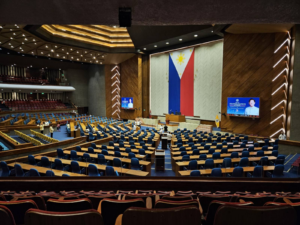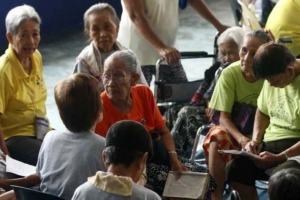
MANILA – There is yet no proof that the newly detected coronavirus variant Omicron is more likely to infect young people or cause severe symptoms, according to a health official on Monday.
Department of Health Epidemiology Bureau officer-in-charge Director Alethea de Guzman stated that more research is needed to better understand Omicron’s transmissibility, infectivity, and effect on vaccine efficacy.
“Base sa pag-aaral, hindi natin makikita kung mas apektado nito ang isang age group at kung mas magiging severe case o mas magiging mataas ang tiyansa ng pagkamatay sa mga kaso na may (Based on studies, we cannot see yet if the variant affects a certain age group or if it causes severe symptoms or if it causes higher chances of death) Omicron variant,” de Guzman said in an online briefing.
According to early news reports, the Omicron variant infected people under the age of 40, and its symptoms are mild (fatigue, headaches, and a slight fever) compared to the Delta variant.
On Nov. 21, the Omicron variant was first discovered in Botswana, Hong Kong, and South Africa. On November 24, it was identified as a variant under surveillance, and on November 26, it was classified as a variant of concern.
“With 50 mutations overall, 30 of which are in the spike region, it is possible that the Omicron variant may cause increased transmissibility and immune invasion,” de Guzman said.
Researchers in South Africa and around the world are conducting studies to better understand several aspects of Omicron, according to the World Health Organization (WHO).
In terms of transmissibility, the WHO stated that it is unclear whether it is more transmissible than other variants, such as Delta.
“The number of people testing positive has risen in areas of South Africa affected by this variant, but epidemiologic studies are underway to understand if it is because of Omicron or other factors,” it said in an update posted on its website on Nov. 28.
It’s also unclear whether Omicron infection causes more severe disease than infections caused by other variants, including Delta.
“Preliminary data suggests that there are increasing rates of hospitalization in South Africa, but this may be due to increasing overall numbers of people becoming infected, rather than a result of specific infection with Omicron,” it said.
“There is currently no information to suggest that symptoms associated with Omicron are different from those from other variants. Initially reported infections were among university students — younger individuals who tend to have more mild disease — but understanding the level of severity of the Omicron variant will take days to several weeks,” it added.
Omicron is rapidly spreading across Europe, compelling local authorities and other countries to close borders to prevent the spread.
Around 14 countries have recorded incidence of the Omicron variant — South Africa, 109; Botswana, 19; Netherlands, 13; the United Kingdom, 3; Germany, 3; Israel, 2; Canada, 2; Hong Kong, 2; Australia, 2; Denmark, 2; Austria, 1; Italy, 1; Belgium, 1; and the Czech Republic,1.
Travel ban have been imposed on travelers from South Africa, Botswana, Zimbabwe, Namibia, Lesotho, Eswatini, Mozambique, Malawi and Seychelles.
Although no cases of the Omicron variant have been found in the country, de Guzman said it is only a matter of time.
“[It] is highly likely that the Omicron variant will eventually come into the country similar to other variants of concern. Measures proposed to be in place are to buy us time to prepare our local health systems,” de Guzman said.
To prevent entry or contain and mitigate cases of the Omicron variant, De Guzman proposed strengthening of “Door 2” of the Four Door or Point of Entry Strategy.
At entry points, the strategy includes screening, quarantine, and testing.
De Guzman urged local government units to conduct active case finding, quick isolation, and contact tracing of detected cases if the variant has entered the country.















